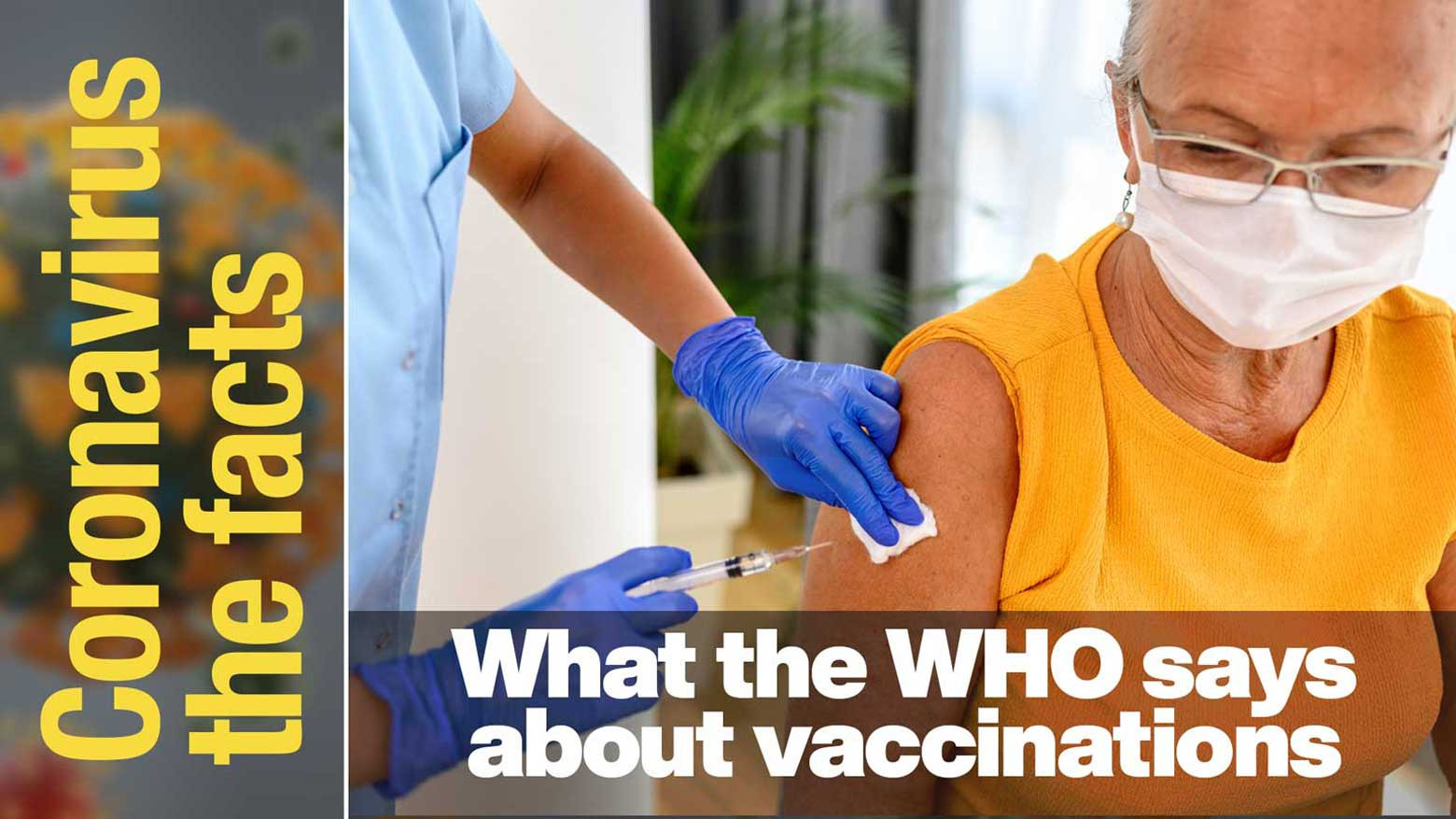This is part 68 of our coronavirus FAQ. Click here to read other installments: #Coronavirus the facts. Find the latest information and answers from experts on everything COVID-19.
Should people with pre-existing conditions be vaccinated?
The Chair of the WHO Strategic Advisory Group of Experts on Immunization, Dr Alejandro Cravioto, told an online news conference on January 7 that the decision to vaccinate depends on the type of pre-existing condition.
He said anyone who has a history of severe allergic reaction to vaccines should not receive it. But if someone has an allergy to food or other products, they don’t need to avoid the vaccine. The WHO recommends that people receive the vaccination at a location where allergic reactions can be treated effectively and immediately.
During the same briefing, the head of the WHO Immunization, Vaccines and Biologicals Department, Dr Kate O'Brien, said the coronavirus poses a higher risk to people with underlying conditions – including heart disease, lung disease, diabetes and obesity – so it’s recommended they get vaccinated.
Should pregnant women be vaccinated?
Dr O’Brien said while no data is available yet on whether the vaccination poses concerns for pregnant women, there is no reason to believe it would harm them or their baby-to-be. The WHO recommends that pregnant women with underlying conditions, especially healthcare workers, discuss their situation with vaccine providers and get vaccinated if they are deemed to be at high risk.
Dr O’Brien said anybody who is at higher risk from the virus, including people with HIV, should receive a vaccination.
What about people who have already been infected?
The WHO highly recommends that people who have recovered from COVID-19 get vaccinated. That’s because it remains unknown how long they are protected from a second infection. Data released on January 6 suggests people who were once infected could be protected for up to 8 months. However, the WHO says people should not be excluded from the vaccination program following an infection – or have their vaccinations delayed.
This information is accurate as of February 1, 2021.
